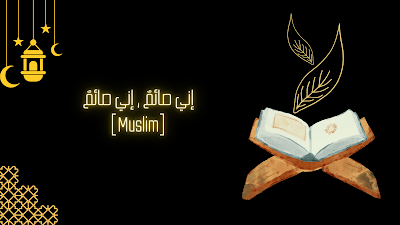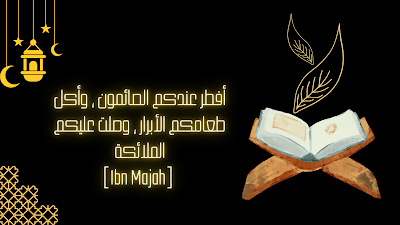Ramadan, the most sacred month of the Islamic calendar, is a time of abundant blessings. Muslims devote themselves to increased worship, good deeds, and supplications or dua. Dua is widely regarded as the believer's weapon due to its potency and capacity to safeguard and provide triumph. According to the Prophet (ﷺ), "Dua is worship." [Abu Dawud]
Understanding which duas to make during Ramadan, when to make them, and how to do so is crucial. The power of a believer's dua is magnified during fasting.
According to Tirmidhi, "There are three people whose supplication is not rejected: the fasting person when breaking fast, the fair ruler, and the supplication of the oppressed; Allah elevates it above the clouds and opens the gates of heaven to it. And the Lord says: 'By My might, I shall surely aid you, even if it should be after a while.'"
One recommendation we offer is to come prepared with a plan for your duas before Ramadan starts. The month will pass quickly, and it is essential to make the most of every precious moment for dua.
Ramadan Duas
1. When you see the crescent moon
اللَّهمَّ أَهلَّهُ علينَا بالأمنِ والإيمانِ والسَّلامةِ والإسلامِ ربِّي وربُّكَ اللَّهُ [Tirmidhi]Allahumma ahillahu alayna bil-amni wal-iman was-salaamati wal-islam. Rabbi wa rabbuka Allah.Oh Allah, make it a start full of peace and faith, safety and Islam. My lord and your lord is Allah.
This prayer beautifully links the concepts of peace and faith, emphasizing their interdependence. Interestingly, in Arabic, the words for peace, 'Amn', and faith, 'Iman', are derived from the same root. Likewise, the prayer also draws a connection between peace and Islam, as the words for peace, 'Silm', and Islam are linguistically linked.
During the holy month of Ramadan, we implore Allah to strengthen our faith and bless us with peace. It is through faith that we find true peace, and it is through peace that we can fully embrace and practice our faith.
As we embark on this spiritual journey, let us strive to cultivate inner peace, not just for ourselves but also for those around us. May we spread kindness and compassion, embodying the true spirit of Ramadan.
2. The dua for opening the fast
وَبِصَوْمِ غَدٍ نَّوَيْتُ مِنْ شَهْرِ رَمَضَانَ [Abu Dawud]
Wa bisawmi ghadinn nawaiytu min shahri ramadan.
I intend to keep the fast for tomorrow in the month of Ramadan.
Consuming even a small amount of food, such as dates and water, before beginning the fast is a Sunnah of the Prophet (ﷺ) and is highly recommended. It is crucial to start any act of worship, including breaking the fast, with a clear intention or dua, whether you express it verbally or silently in your heart.
This simple act of intention-setting can help us approach our spiritual practices with focus, mindfulness, and sincerity. It reminds us of the purpose behind our actions, and strengthens our connection with Allah (SWT).
As we prepare to break our fasts during Ramadan, let us remember the Sunnah of the Prophet (ﷺ) and make a conscious effort to set our intentions before we partake in any food or drink. May Allah (SWT) bless us with the strength, guidance, and wisdom to make the most of this blessed month.
3.The dua for breaking your fast
ذهب الظمأ وابتلت العروق وثبت الأجر إن شاء ال:له [Abu Dawud]
Dhahaba adh-Dhama’ wabtallatil-urooq wa thabatal-ajr inshaa’Allah.
Thirst is gone, the veins are wet, and the reward is confirmed by the will of God.
The time of breaking the fast presents an excellent opportunity to make dua, as advised by the Prophet (ﷺ). This is a time when our hearts and minds are particularly receptive, and our supplications are more likely to be accepted.
As we break our fasts and partake in food and drink, let us take a moment to express gratitude to Allah (SWT) for His countless blessings. Let us also use this time to seek forgiveness for our shortcomings, and to ask for His guidance and support in all aspects of our lives.
4. If someone angers you when you are fasting
إني صائمٌ ، إني صائمٌ [Muslim]
Innee saa’im, innee saa’im
I’m fasting, I’m fasting.
When faced with aggression, it is important to remember that responding with calm and composure can be a powerful tool in de-escalating the situation. One effective strategy is to respond to the aggressor by stating your boundaries firmly and clearly.
You can choose to speak out loud, ensuring that the aggressor hears and understands your message. Alternatively, you may opt to communicate your boundaries silently, using non-verbal cues such as maintaining eye contact or physically creating distance between yourself and the aggressor. Whatever approach you choose, it is crucial to remain calm, assertive, and respectful.
5. The dua for breaking your fast with a group of people
أفطر عندكم الصائمون ، وأكل طعامكم الأبرار ، وصلت عليكم الملائكة [Ibn Majah]
aftara indakum as-saa’imoon, wa akala ta’aamakum al-abraar, wa sallat alaikum al-malaa’ikah.
May the fasting people break fast at your place, and may the pious eat from your food, and may the angels pray for you.
Ramadan is a time of generosity and togetherness, where Muslims around the world come together to share meals and break their fasts. Iftar, the evening meal that breaks the fast, is often a communal event where families and friends gather to share in the blessings of this sacred month.
In this spirit of togetherness, it is beneficial to remember a beautiful dua that can be recited when breaking your fast with others. Although not widely known, this dua is a powerful reminder of the importance of unity and brotherhood in Islam.







